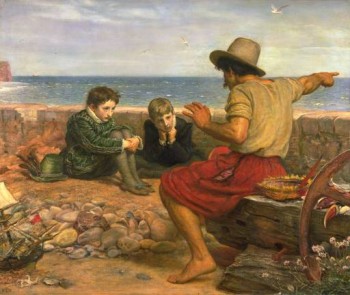Search results for "🚒💋 Generic viagra caps, sildenafil citrate, 100mg > ☑ www.WorldPills.NET 🧯☑ <. discount online pharmacy📪✅⧒:sildenafil - Amazon.com, sildenafil price,sildenafil 100mg tablets for sale,sildenafil citrate tablets 100mg"
Online, offline?
17 April 2014 | Articles, Non-fiction

‘The bookworm’ (old-fashioned) by Carl Spitzweg, ca. 1850. Museum Georg Schäfer. Photo: Wikimedia
Ebooks are not books, says Teemu Manninen, and publishers who do not know what marketing them is about, may eventually find they are not publishers any more
At least once a year, there is an article in a major Finnish newspaper that asks: ‘So, what about the ebook?’ The answer is, as always: ‘Nothing much.’
It’s true. The revolution still hasn’t arrived, the future still isn’t here, the publishers still aren’t making money. In Finland, the ebook doesn’t seem to thrive. The sales have stagnated, and large bookstores like the Academic Bookstore are closing their ebook services due to a lack of customers.
Why is Finland such a backwater? Why don’t Finns buy ebooks?
The usual explanation is that Finland is a small country with a weird language, so the large ebook platforms like Amazon’s Kindle and Apple’s iBook store have not taken off here. Another patsy we can all easily blame is the government, which has placed a high 24% sales tax on the ebook. If that isn’t enough, we can always point a finger at the lack of devices and applications or whatever technical difficulty we can think of. More…
Cause of death
30 June 1999 | Archives online, Fiction, Prose
A short story from Åtta kroppar (‘Eight bodies’, Söderströms, 1998). Introduction by Ann-Christine Snickars
It was a bailer, a blue one. There they were, he, she, the bailer and a stormtossed net on the stern board of a hired boat. The boat had come with the cottage and the cottage with ‘Autumn archipelago package. Now nature is aglow.’
And it was aglow.
Masses of foliage and apples, damson and shiny russula spread out around them in all their glory. It happened everywhere, that glowing. Wherever one turned one’s gaze there was something ready to be picked or ready to fall, ready in general. Those first days they had, at least to each other, she to him, feigned enthusiasm about all this ripe richness, but that time was over.
Their time of fire and flames was over. More…
Des res
Extracts from the novel Juoksuhaudantie (‘The Trench Road’, WSOY, 2002)
Matti Virtanen
I belonged to that small group of men who were the first in this country to dedicate themselves to the home front and to women’s emancipation. I feel I can say this without boasting and without causing any bickering between the sexes.
A home veteran looks after all the housework and understands women. Throughout our marriage I have done everything that our fathers did not. I did the laundry, cooked the food, cleaned the flat, I gave her time to herself and protected the family from society. For hours on end I listened to her work problems, her emotional ups and downs and her hopes for more varied displays of affection. I implemented comprehensive strategies to free her from the cooker. I was always ready with provisions when she got home exhausted after a day at work. More…
What’s so great about paper?
17 September 2009 | Articles, Non-fiction

High-tech: the ultimate gadgets of the 15th century, parchment and pen. A portrait of Jean Miélot, the Burgundian author and scribe, by Jan Tavernier (ca. 1456)
The day will soon come when commuters sit on a bus or train with their noses buried in electronic reading devices instead of books or newspapers. Teemu Manninen takes a look at the digital future
Most people interested in books are aware of the arrival of electronic reading devices such as the Amazon Kindle, a kind of iPod — the immensely popular portable music listening device made by the company Apple — for electronic books. For a literary geek like me, the Kindle and e-readers should be the ultimate gadget: a whole library in a small, paperback-sized device. However, I’ve been wondering why digital reading hasn’t become as popular as digital listening. I myself have not invested in an e-reader, although I ought to be exactly the desired kind of customer. After all, I read all the time. Even the mp3 player I have is mostly used for listening to audio books. More…
The price of a free lunch
31 December 1994 | Archives online, Fiction, Interviews
Eeva Joenpelto’s new novel, Tuomari Müller, hieno mies (‘Judge Müller, a fine man’), is the story of a good woman with a bad conscience, and of the small-town, big-business corruption of Finland in the 1980s. (Interview of EJ: 1994)
… the front door of the office building flew open. Men swept out and down the street, as fast-moving, garrulous and laughing as if it had been decided by vote in a council meeting. The entire width of the street was filled with the scent of vigorous, masculine deodorants: thyme, tarragon, gunpowder.
At the end of the 1980s, successful men smelt of gunpowder even in the Finnish boondocks: then, after all, money was on the move, whatever the business – bank management, whirlpool baths or local politics. This last seemed to move significantly closer to business life when the fast-moving and garrulous politicians organised a few benefits for themselves from the flowing stream of money, and no one saw fit to object. Yet. More…
The net
30 June 2000 | Archives online, Fiction, poetry
Poems from Verkko (‘The net’, WSOY, 1999). Introduction by Peter Mickwitz
The descent
Down the stairs, out through the gate into the street
and you wonder
what the cobblestones had in mind
with the waves that beat
and the rock that was humbled
smooth in the course of millennia.
Streetcars would rumble
toward them with ancient god force.
Now the stones lie there quietly like
fish blown ashore
petrified by the sun.
Their memory is short. Steel is mute.
The rails remember Kallio, remember Töölö.
Words are thinner than they used to be;
they’ve been walked over too many times.
The city. more glabrous, no longer stretches
algae-covered tentacles to the gates of Babylon.
Like an animal with a premonition, the city pulls its soft parts
inside a calcareous shell, does its work there in secret.
Much has disappeared: no more twitching tectonic plates
brought on by words, no electric storms in the bowels.
Coffee is the measure of violence: no more tobacco
in whose smoke one could heal loneliness and the world.
As before, you look through glass, just a thin glass,
at the sidewalk and trees facing the restaurant. A man
is pushing a baby carriage. The glass reflects your face very briefly.
Part of you is out there, part stumbles about again in some Yoldia
a mute stone and a worn hope in his pocket. still,
that the world’s mute stones would break down into song, give
voice, crumble a couple of notes here, and a key.
Vermeer: the kitchen maid
A great painting does not require a great subject,
kings in pantyhose, the Peace of Westphalia.
The kitchen maid pours milk in a bowl, and soon
the canvas brims with self-radiant liquid
in which the morning and chunks of bread float.
The trap is primed. No rat to be seen.
Bits of something white roll on the floor. Smelling salts?
Under the milky film of the wall there are things
going on that the maid has no inkling of
a cockroach makes its way through the sawdust,
enzymes dismantle compounds into smaller pieces.
Farther away, a star collapses
and begins to radiate darkness.
Its message – a quantum of black light –
reaches Helsinki only today,
a city surrounded by ramparts of snow.
These, among other things, influence
my being what I am.
I wrap myself in darkness and wait
for the next whim, a tiny,
decisive mistake.
That’s why
The half-drowned
apartment building drifts.
Between the stuccoed ribs
disease blooms, sprouts tendrils.
punctures pulmonar alveoli. articular capsules.
Every night I could melt into the tub
until the water darkens to a hepatic dream.
One must protect oneself against the outside air.
The light draws boundaries that are too clear.
One must protect oneself against the brightness of skin.
That is why I travel deeper into your chest,
crave the tar from your lungs and the tracheae
into which I blow, a fanfare, when we are
heat and hunger,
grow vertically up from the ground toward
the fainted sun,
pull up rails, roots, traffic signs,
rusty legends,
rear up to the height of our withers, slop sweat and oil.
Aerial view
These wondrous mobiles
with which we can conquer distances.
Only the view always is the same heavenly
snow drift, nothing but condensing steam.
Icarus must have cooled his wings here,
the wax whose precise consistency is a mystery to us.
The higher he rose
the worse he froze
until the wax became too cold and melted.
By scientific means machines have been built
in which a human being can rise and fly to another
planetary phenomena in his belly
such as the direction of blood’s circulation. Loneliness
has rarely been a castle in whose cellar
philosophy was tinkered with or music distilled.
The horses were harnessed for death, the rest into museums,
cast in plastic.
The polar sea folds into a pocket
as a map that tells you where you should already
be, and how.
Translated by Anselm Hollo
Decisions, decisions: the fate of virtual literature
28 November 2013 | Articles, Non-fiction

Once upon a time: ‘Boyhood of Raleigh’ by J.E. Millais (1871). Wikipedia
In an era of ‘liveblogging’‚ we are all storytellers. But what’s the story, asks Teemu Manninen
One score of years ago, when the internet was new, the cultural critics of the time were fond saying that it would usher in a new utopia of free distribution of information: we would be able to read everything, know everything and share everything anywhere and every day.
Truly, they told us, we would become enriched by the internet to the point of not knowing what to do with all that wealth of knowledge, the amount of connections between us and the ever-increasing online availability of anyone with everyone, every waking hour.
Now that we really do have this always-on connectivity, you will indeed be available every waking hour: you will update your status, check your inbox, post pics and be available for chatting, texting, a quick email and a message or two, just to make sure no one is offended by your unreachability, since – from experience – a week’s worth of not tweeting or facebooking can make someone think that something serious has happened, or that you don’t even exist anymore. More…
Anna-Lena Laurén: Frihetens pris är okänt. Om demokratiska revolutioner i Georgien, Ukraina och Kirgizistan [The price of freedom is unknown: On democratic revolutions in Georgia, Ukraine and Kyrgyzstan]
22 November 2013 | Mini reviews, Reviews
 Frihetens pris är okänt. Om demokratiska revolutioner i Georgien, Ukraina och Kirgizistan
Frihetens pris är okänt. Om demokratiska revolutioner i Georgien, Ukraina och Kirgizistan
[The price of freedom is unknown: On democratic revolutions in Georgia, Ukraine and Kyrgyzstan]
Helsinki: Schildts & Söderströms, 2013. 212 pp., ill.
ISBN 978-951-523-227-4
€25, paperback
Finnish edition:
Kuinka kallis vapaus – värivallankumouksista Georgiassa, Ukrainassa ja Kirgisiassa
Suomentanut [Translated into Finnish by] Liisa Ryömä
Helsinki: Teos, 2013. 219 pp., ill.
ISBN 978-951-851-473-5
€28.40, paperback
Anna-Lena Laurén (born 1976) is an award-winning Finland-Swedish journalist, author and Moscow-based foreign correspondent. In this volume of reportage, she investigates three post-Soviet states after their ‘democratic revolutions’, which took place between 2003 and 2005. Georgia, Ukraine and Kyrgyzstan differ from one another in many respects. Georgia has made the most progress along the road to democracy, but even it remains an authoritarian state. Ukraine is plagued by corruption; impoverished Kyrgyzstan – culturally and linguistically divided, like Ukraine – is relatively free, but corruption is rife. For good or ill, these countries are overshadowed by their former ruling power, the present-day nation of Russia. Anna-Lena Laurén has listened with a keen ear to politicians, intellectuals, farmers and workers, as well as members of minority groups. She is well-versed in the history and current situation of these countries and portrays people’s everyday lives with empathy while spotting the green shoots of democracy in among the difficulties.
Translated by Ruth Urbom
The last melody
30 September 1995 | Archives online, Fiction, Prose
Extracts from the novel Kadotettu puutarha (‘The lost garden’, WSOY, 1995). Introduction by Riina Katajavuori
Their sojourn at the villa extended into the autumn of 1944; the schools did not go back as usual on the first of September. Repair of the university buildings progressed rapidly; the work had begun immediately after the bombing. The Doctor went to town from time to time, but nothing bound the family to it, and he returned to his desk in the attic room and to his solitary walks by the lake. His heart troubled him from time to time. It did not like these walks, did not like exertion; but he had succeeded in concealing the matter from Elisabet. After one particular attack, he had secretly seen a doctor in town, and now, instead of camphor tablets, he always had those little buttons in his pocket, the breast pocket of his waistcoat. He swallowed one from time to time on these expeditions, a pain in his wrists and his eyes staring dimly at a clump of ferns that seemed to have become hazy, or a tree-top that seemed to be falling toward him. He did not wish Elisabet to know. Not this, in Elisabet’s world, not this, in air that was suffused with grief for their dead son Leo, with well controlled and beautifully expressed emotion, with concern for the remaining boy, who was there, on the frontier, with the burdensome and universal tragedy that filled the air as light filled it in daytime. More…
Grown-up talk
13 June 2013 | Non-fiction, Tales of a journalist

Illustration: Joonas Väänänen
Would you say this to someone face to face? No? But anonymously, in writing, you do. Columnist Jyrki Lehtola takes a look at the way Finns tend to behave on the Internet
Babies. They’re cute. They have to be – they are babies after all. And their parents are lovely people, because they have those cute babies. Even they have a hard time believing how mellow and happy they are now that they have a baby.
But what happens to parents when the baby falls asleep and they get to creep off to the Internet? They completely freak out and turn into belligerent trolls. More…
1968
30 March 2005 | Fiction, Prose
A short story from Lugna favoriter (‘Quiet favourites’, Söderströms, 2004)
We were in the space age, the age that came and went, the age of space and great dreams, when space was what we talked about and space was what the papers wrote about, and about Vietnam and protests and revolution, in articles precocious and prematurely old children spelled their way through, children living in the mixed forests of the North which had recently been transformed into gleaming suburbs where ink-caps, puffballs and parasol mushrooms still grow in the backyards of high-rise tower blocks. It says in the paper that we humans will soon have to move away, leave the Earth because our planet has become overcrowded and almost uninhabitable, and space and the eternity of space are waiting for us and we have engineers of the highest class who will soon solve such small problems as still remain. It’s not a question of forests of mixed trees or ink-caps or parasol mushrooms or other earthly things, it’s a question of it being too late now, that we must go further, first to the moon and then to Mars and Andromeda and further still, and here are some of the key words and phrases: space programme, space race, Apollo, Vostok, Tereshkova and Glenn. For humanity has dreams, dark mixed visions and a nagging and not easily extinguished sense of life’s inscrutability and greatness, but down here all goes on as before, we kill each other, we kill our fellow men in jungles and marshes, we kill them amid rugged mountains and in snow-clad forests, we poison them and blow them to pieces, we kill them in dark backstreets and in ramshackle wooden hovels and in mighty marble palaces where the bath-taps glitter with gold. Only a chosen few are able to escape, and to do this they have to set off upwards into a coolness, and seek out a darkness and solitude where there will be no anxiety or feelings of guilt. But before they can get there they must face opposition of a magnitude that can only be overcome by a fierce rush of power, and before the rocket can start it sits and breathes out smoke and gases and fire for a good thirty seconds before lifting off slowly and reluctantly as if unwilling to leave its home planet, as if it hasn’t the slightest desire to go, but when it gets under way it travels at incomprehensible speeds over unimaginable distances, it’s only 108 years since Lenoir invented the internal combustion engine and we are already up in space where it’s silent and cool and peaceful, just a little anxiety in case some instrument fails, in case some double safeguard shows itself insufficient, otherwise nothing, just weightlessness and silence, just the oceans and deserts and mountain-chains on the surface of our blue globe. Though let’s be fair: the Chinese, who haven’t been up in space, claim that the Great Wall of China must be visible from up there, but on the other hand they have nothing to say about the visibility of new-built suburbs in the miserable little capitals of small underpopulated countries with frosty climates. More…
Daddy dear
30 June 2004 | Archives online, Fiction, Prose
Extracts from the novel Vanikan palat (‘Pieces of crispbread’, Otava, 2004). Interview by Soila Lehtonen
Dad’s at the mess again. Comes back some time in the early hours. Clattering, blubbing, clinging to some poem, he collapses in the hall.
We pretend to sleep. It’s not a bad idea to take a little nap. After a quarter of an hour Dad wakes up. Comes to drag us from our beds. Crushes us four sobbing boys against his chest as if he were afraid that a creeping foe intended to steal us. We cry too, of course, but from pain. Four boys belted around a non-commissioned officer is too much. It hurts. And the grip only tightens. Dad whines:
‘Boys, I will never leave you. Dad will never give his boys away. There will be no one who can take you from me.’ More…
Hotel for the living
30 June 1984 | Archives online, Fiction, Prose
An extract from Hotelli eläville (‘Hotel for the living’, 1983). Introduction by Markku Huotari
Raisa and Pertti are a married couple with three children, Katrielina, Aripertti and Artomikko. When she discovers she is to have another, whom she names Katjaraisa, Raisa decides to have an abortion, because another child, even if welcome, would now jeopardise her career – she has been offered a job with an international company at the very top of the advertising world. Raisa is the successful entrepreneur of the novel – on the one hand coldly calculating, without feeling, on the other superficially sentimental, perhaps the most startlingly ironic of the characters in Jalonen’s novel. His image of the brave new woman?
During her lunch hour Raisa took a walk via the laboratory, asked reception for the envelope and thrust it unregarded into her handbag. She was aware of her already knowing, but short of the envelope, there would as yet be no restrictions, nor were there any decisions that would have to be made. She had called Tom Eriksson, discussed yet again the same points and particulars, and ended tracing a finger over the two beautiful pictures on her wall. ‘The loveliest of seas has yet to be sailed’ and ‘I am life! For Life’s sake.’
She thought of Katjaraisa, her features, the palms the breadth of two fingers, just as Katrielina’s had been, and the same button-eyed gazing look as Katrielina. More…
Cruising
30 September 1993 | Archives online, Fiction, Prose
An extract from the novel Vieras (‘The stranger’, Otava 1992). Introduction by Pekka Tarkka
I lay there for a moment, motionless, eyes closed.
The bunk was damp. It felt damp around my thighs; I slid down lower – and there, it was really wet.
My sleeping bag was obviously soaked, and that meant that the mattress was soaked, too. Oh, rats. I couldn’t imagine having wet myself. Or – worse – had the boat sprung a leak, the water already rising up to the floorboards? I bounded to my feet: the rugs were dry. So was the cabin floor. I raised the boards, peered down: two fingers of water in the forward bilge, as usual. So, where the –? In the course of yesterday’s rough sailing, some water had seeped in below the windowframe. No more than a cupful, but it had trickled down inside the panel and then onto the mattress. I tried the other side of the bunk. It was dry. Well, I would just have to pick up the mattress and set it on its side. More…

